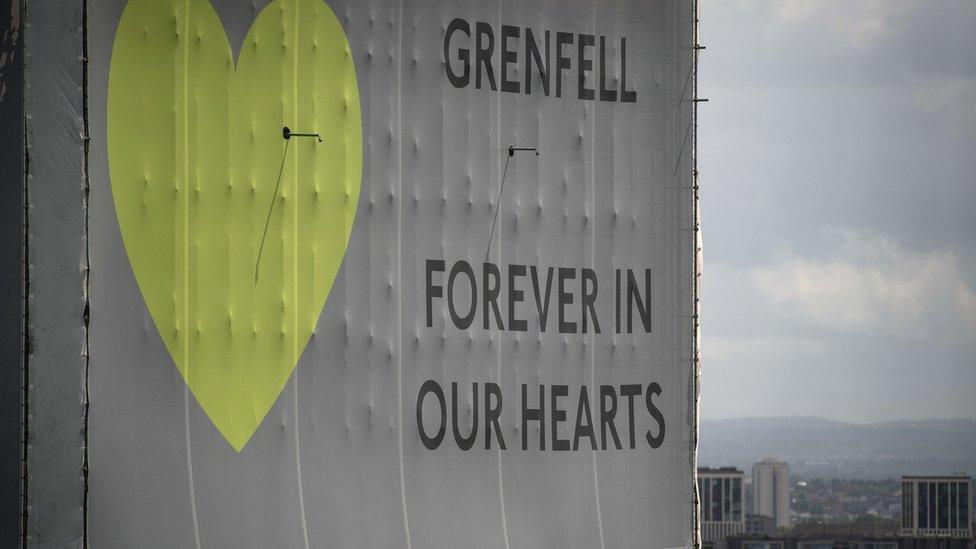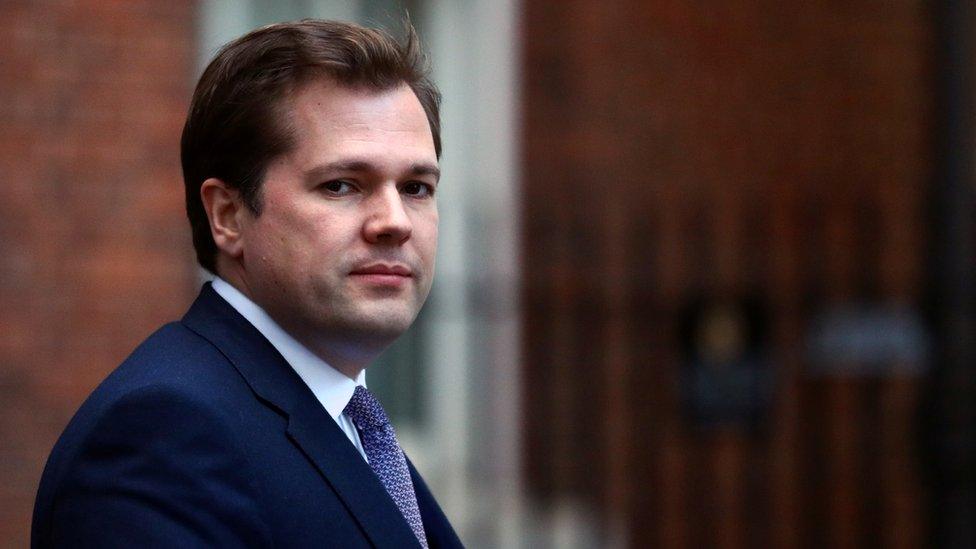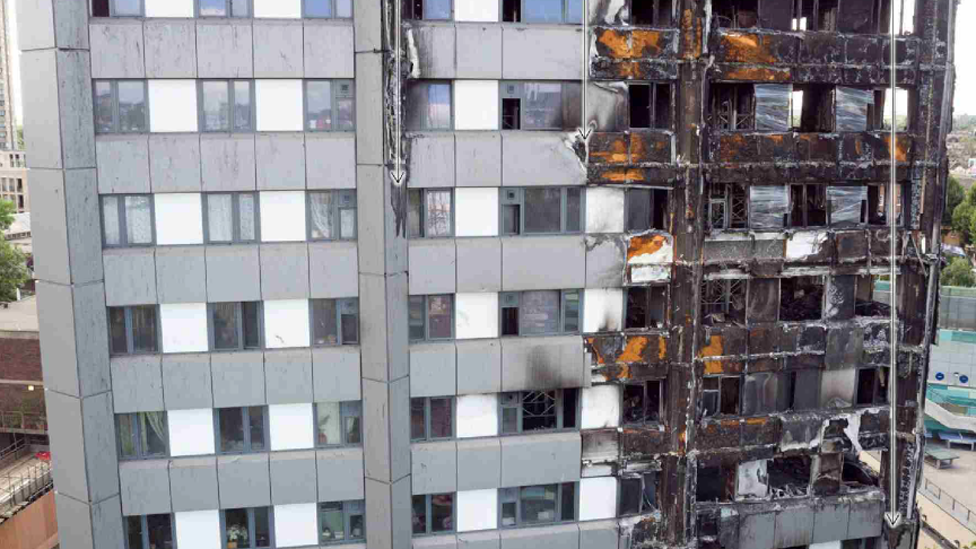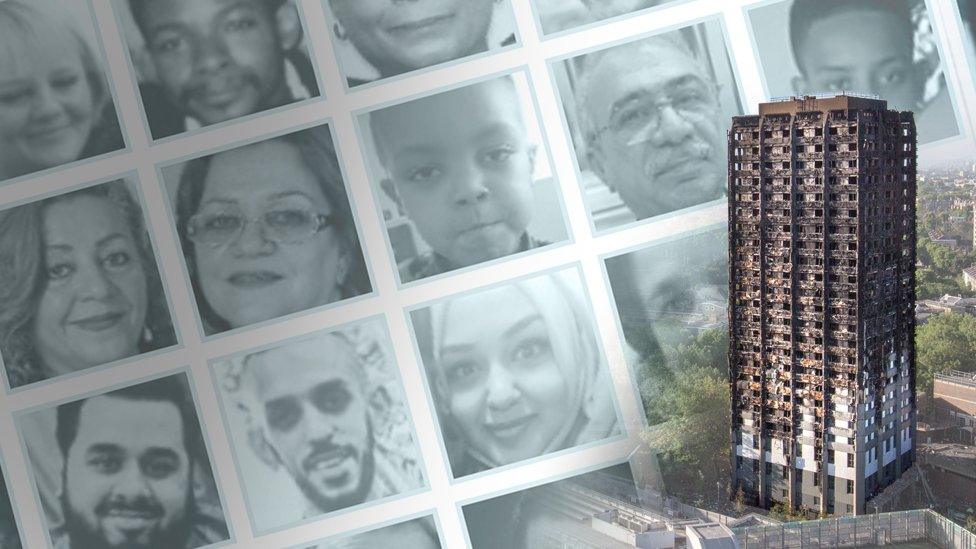Grenfell Tower fire gives me 'sleepless nights' - housing secretary
- Published

An interim report into the 14 June 2017 fire has been delayed but is due next week
Housing Secretary Robert Jenrick has said the issues surrounding what caused the Grenfell Tower fire have given him sleepless nights.
He also admitted the government's response to the June 2017 fire, which killed 72 people, has been too slow.
His comments come ahead of next week's release of the first report following the inquiry into the tower block fire.
Mr Jenrick told the BBC his role as housing secretary meant he would feel responsible if there was another fire.
Speaking to Radio 4's Political Thinking podcast, he told presenter Nick Robinson he remained "very worried" about the problems raised by the Grenfell Tower fire.
"Issues like that give you a sense of the gravity of being the person who is ultimately in charge of something that's very significant to the public," he said.
"On that issue, I have genuinely had sleepless nights."
Mr Jenrick said he believed the government was taking the right steps, but added: "The pace can be too slow."

"When I turn on the TV and see fires in buildings - which do happen every couple of weeks or months - I feel as if we need to do a lot more and a lot faster to make sure that people are safe," he said.
"If, God forbid, there was another incident anything like the Grenfell tragedy tomorrow, how would you explain how that could have happened two and a half years later?"
Mr Jenrick, who replaced James Brokenshire as housing secretary in July, said he met survivors of the fire a couple of weeks into starting the role, describing it as "one of the most moving two or three hours of my life".
"They are some of the most dignified people you will ever meet," he said. "The stories that they retell would move anybody to tears."
He said that a "great deal of time" in his new role has been devoted to the response to the Grenfell Tower fire and how to create a building safety regime that "people can trust and rely on and go to sleep safely".
Report 'buried'
The publication of the first report following phase one of the inquiry into the fire was initially delayed and will now be published on 30 October.
The decision to release the report then - the day before the date which was meant to be the Brexit deadline - was criticised by some of the campaign groups representing those affected by the tragedy.
Grenfell United wrote a letter to the inquiry chairman, Sir Martin Moore-Bick,, external urging publication to be brought forward to avoid "burying it in Brexit".
Natasha Elcock, chairwoman of Grenfell United, wrote that the report needed to be released at a time that would "give it the chance of being reported across the country, so that organisations and institutions will be held to account and feel pressure to make changes".
Justice 4 Grenfell posted on Facebook, external that it was "a deliberate ploy resigning the value, importance, and national interest of the disaster to the bottom of the pile".
The first phase of the inquiry, which ended in December 2018, looked at what happened on the night that 72 people were killed at the 23 storey tower block in west London.
Phase two, which is expected to start in January next year, will examine causes of the fire, including the use of cladding blamed for helping it to spread.
- Published17 May 2019

- Published29 October 2019

- Published30 May 2018
